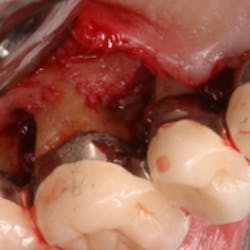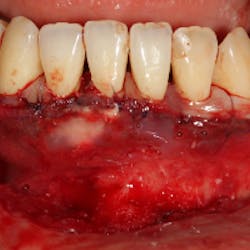Giving drugs before surgery to reduce postoperative pain is nothing new. With today’s widespread misuse of prescription drugs for postoperative pain, using drugs before surgery to reduce use of painkillers could be highly desirable. But does it work?
The authors of an article published in the current issue of the journal Anesthesia Progress looked at several studies that tackled that question. In the studies, over-the-counter medications such as ibuprofen were given before oral surgery in an attempt to cut down prescription painkiller use afterward. The authors hoped that by systematically reviewing existing research, they could find out whether such preemptive efforts work.
ADDITIONAL READING |Smaller anesthesia needle bore fails to reduce pain
Dentists often prescribe oral drugs for postoperative pain. Nonsteroidal anti-inflammatory drugs (NSAIDs) such as ibuprofen are a popular option worldwide because they are common, cheap, and effective. When painkillers are given before surgery, they ideally reduce—or even prevent—the pain that is typically felt during and after an operation. When these drugs work, patients recover faster and get back to their daily activities more quickly.
The authors reviewed six quality studies of patients who had surgery for impacted wisdom teeth. These studies tested whether giving ibuprofen or another NSAID orally before the surgery could reduce the pain felt later. The studies included in the review were published between 1989 and 2012 and reported on a total of 420 patients.
ADDITIONAL READING |A novel non-narcotic approach to pain management: By the clock
The authors found widely varying results among the studies. This was partly because the studies themselves were so different. Five types of painkillers were given, all at different times and in different dosages. Other factors, such as anesthesia use and evaluation methods, were also inconsistent across the group of studies.
ADDITIONAL READING |Addition of ATP to midazolam offers enhanced dental sedation, fewer adverse effects
The studies reported that giving ibuprofen before or after surgery resulted in the same levels of pain, facial edema, and limited mouth opening. Ketoprofen, another NSAID, was given at different dosages before surgery in different studies, but the results were the same. According to the studies reviewed, no great improvements in pain relief were found with any other drugs given before surgery.
The combined results suggested that there is no benefit from the preoperative use of ibuprofen and similar drugs in decreasing postoperative pain. The authors found it impossible to draw stronger conclusions because the timing, types of drugs and surgery, and use of other pain relief techniques varied so widely among the studies. They concluded that further careful clinical trials are required to provide solid information on this controversial topic.
Full text of the article “Does the Preemptive Use of Oral Nonsteroidal Anti-inflammatory Drugs Reduce Postoperative Pain in Surgical Removal of Third Molars? A Meta-analysis of Randomized Clinical Trials,” Anesthesia Progress, Vol. 62, No. 2, 2014, is now available.
Anesthesia Progress is the official publication of the American Dental Society of Anesthesiology (ADSA). For more information, visit their website.
Latest in Surgical Technique
Latest in Surgical Technique






